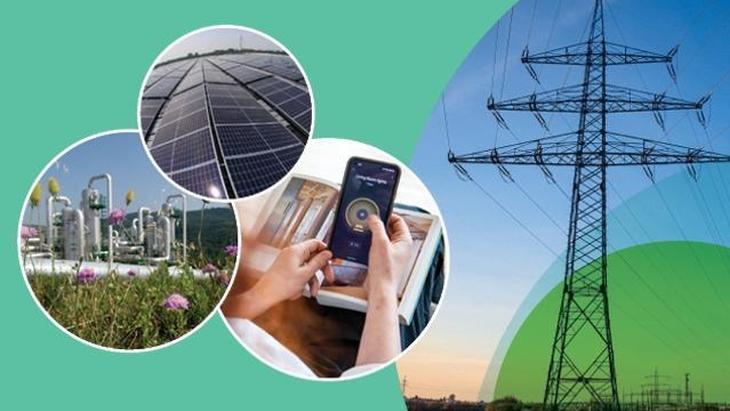The European Commission today presented the REPowerEU Plan, which provides for major changes, needed to ensure the independence from Russian resources, the EU Executive announced.
According to a release on EC’s site consulted by Energynomics, main changes include the surge of the 2030 target for renewables from 40% to 45% and new funding billions of euro, needed to spur investments.
The Commission also proposes to enhance long-term energy efficiency measures, including an increase from 9% to 13% of the binding Energy Efficiency Target under the ‘Fit for 55′ package of European Green Deal legislation.
Diversifying gas supply is also an important pillar of the new strategy.
”The EU External Energy Strategy adopted today will facilitate energy diversification and building long-term partnerships with suppliers, including cooperation on hydrogen or other green technologies,” say the EC officials.
Besides EC’s proposal to increase the headline 2030 target for renewables from 40% to 45% under the Fit for 55 package, the new strategy also provides for „a dedicated EU Solar Strategy to double solar photovoltaic capacity by 2025 and install 600GW by 2030.”
It also provides „a Solar Rooftop Initiative with a phased-in legal obligation to install solar panels on new public and commercial buildings and new residential buildings” and „doubling of the rate of deployment of heat pumps, and measures to integrate geothermal and solar thermal energy in modernised district and communal heating systems.”
The strategy also promises „shortened and simplified permitting processes” for renewables.
It is setting a target of 10 million tonnes of domestic renewable hydrogen production and 10 million tonnes of imports by 2030, to replace natural gas, coal and oil in hard-to-decarbonise industries and transport sectors. „To accelerate hydrogen projects, additional funding of 200 million euro is set aside for research,” reads the document.
Increasing funding
Delivering the REPowerEU objectives requires an additional investment of 210 billion euro between now and 2027. This is a down-payment on EU‘s independence and security. Cutting Russian fossil fuel imports can also save us almost 100 billion euro per year. These investments must be met by the private and public sector, and at the national, cross-border and EU level.
To support REPowerEU, 225 billion euro is already available in loans under the RRF. The Commission adopted legislation and guidance to Member States today on how to modify and complement their RRPs in the context of REPowerEU. In addition, the Commission proposes to increase the RRF financial envelope with 20 billion euro in grants from the sale of EU Emission Trading System allowances currently held in the Market Stability Reserve, to be auctioned in a way that does not disrupt the market. As such, the ETS not only reduces emissions and the use of fossil fuels, it also raises the necessary funds to achieve energy independence.
Under the current MFF, cohesion policy will already support decarbonisation and green transition projects with up to 100 billion euro by investing in renewable energy, hydrogen and infrastructure. An additional 26.9 billion euro from cohesion funds could be made available in voluntary transfers to the RRF. A further 7.5 billion euro from the Common Agricultural Policy is also made available through voluntary transfers to the RRF. The Commission will double the funding available for the 2022 Large Scale Call of the Innovation Fund this autumn to around 3 billion euro.
The Trans-European Energy Networks (TEN-E) have helped to create a resilient and interconnected EU gas infrastructure. Limited additional gas infrastructure, estimated at around 10 billion euro of investment, is needed to complement the existing Projects of Common Interest (PCI) List and fully compensate for the future loss of Russian gas imports. Also, accelerating electricity PCIs will also be essential to adapt the power grid to future needs. The Connecting Europe Facility will support this, and the Commission is launching today a new call for proposals, with a budget of 800 million euro, with another one to follow in early 2023.

